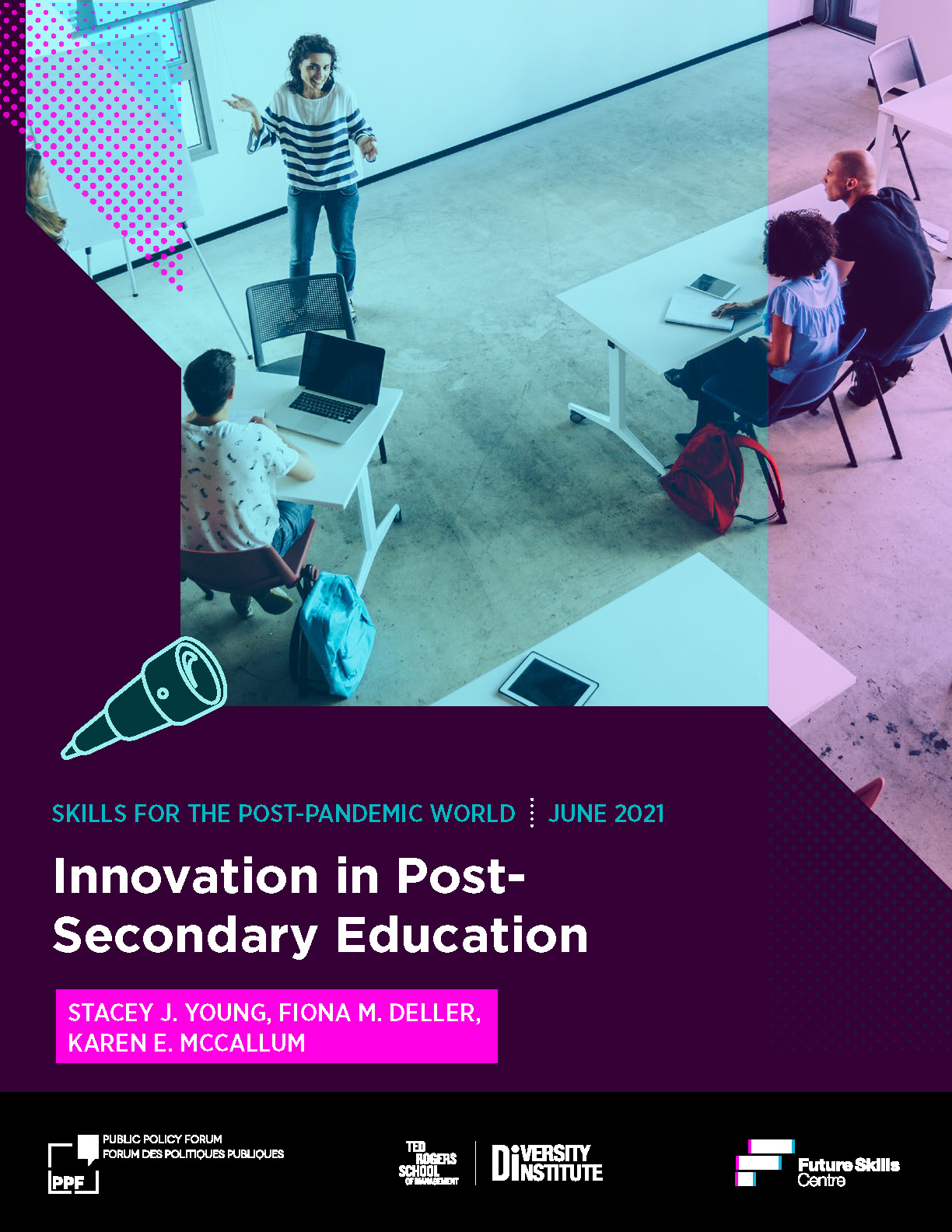
Innovation in Post-Secondary Education
Series | Skills for the Post-Pandemic WorldKey Takeaways
- While COVID-19 has accelerated the rate of change, many technology-related trends in education had already begun before the pandemic. The key to sustainable change is finding ways to embed flexibility and responsiveness into curriculum development so it can meet external demands (including from students, workers, governments, and employers) as they arise.
- The intensity of demand for certain innovations to services and program delivery will drop post-pandemic, but many of the changes begun or accelerated in response to COVID-19 will retain value in the future and become entrenched in the culture and activities of Canada’s post-secondary education sector.
- Rapid responses to crises or societal changes can be slowed by ponderous program approval processes and the rigid mechanics of funding regimes. PSE institutions have managed to find some workarounds that have enabled rapid innovation at the edge, but these workarounds are not sustainable over the long term and need to be integrated into mainstream funding and credentialing systems to persist and spread.

EXECUTIVE SUMMARY
Canada’s post-secondary institutions are well-positioned to prepare the country for a prosperous future — they are accessible and diverse in mission and scope, offering a wide range of program offerings and formats. Despite the constraints imposed by their funding, quality control and regulatory mechanisms, they demonstrate responsiveness and innovation to labour market signals and challenges. For its part, COVID-19 has laid bare both the challenges faced by the system and the institutions within it and their ability to respond quickly, efficiently and innovatively in times of crisis. And although the Canadian system does a good job of promoting access to the post-secondary education (PSE) system, there remain significant opportunity gaps that are being filled by program innovations that circumvent the existing set of rules regarding program approval, quality and funding regimes.
Through the selection of innovative case studies, we highlight examples of how PSE institutions strive to be labour market responsive in ways that are learner-centred and accessible. However, to continue to meet the demands of the future, we conclude with some recommendations for how governments may support greater capacity for program innovation and opportunities for timely and accessible education and training opportunities.
Thank you to our partners
Skills for the Post-Pandemic World series is funded by the Government of Canada’s Future Skills Program
With support from












